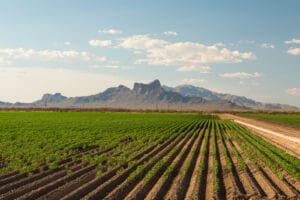Why should humans curtail economic activity to preserve endangered forms of life? The question needs answering for each new generation despite the fact the Endangered Species Act has been in place for 36 years now.
World-renowned National Geographic photographer Joel Sartore notes in his newest book that nearly 2,000 plants and animals are listed as endangered species. This doesn’t even account for those that are already extinct.
Forty Arizonan species are endangered or threatened under federal law, meaning they are close enough to extinction to necessitate protection. Arizona is losing its native wildlife. As animals ourselves, this should make us very nervous.
Sartore’s book, Rare: Portraits of America’s Endangered Species, started as a personal project and grew into a three-year effort to document everything from grizzly bears to endangered flies. Rare includes portraits of some of the country’s most endangered creatures. Some of them are likely to go extinct without people ever knowing they existed. This thought-provoking picture book shows the reality of the Earth’s vanishing biodiversity and what we stand to lose if we don’t act now.
Biodiversity produces the food we eat and the air we breathe. It also filters our water, controls disease and maintains our climate. The impact of losing native species is profound. Every mammal, bird, fish, reptile and invertebrate native to the state of Arizona is ultimately at risk as rivers continue to dry up, forests vanish from wildfires and drought, and desert habitats are turned into urban landscapes.
Despite the somber topic of extinction, Sartore’s book manages not only to present the beauty of some of the last members of animals and plant species in the world, but also to inspire readers. The last chapter of the book showcases animals that have started to come back from brink of total extinction through conservation programs, such as the bald eagle, the gray wolf and the California Condor.
Thus, the good news is that there is still time. However, we each need to do our part to save these unique creatures — and ultimately, ourselves. By pledging to reduce, reuse, recycle and greening our own lifestyles and business practices, we can take the first step towards helping to save species from being lost forever.
Arizona is privileged to be hosting Sartore as the keynote speaker at Valley Forward’s 41st Annual Luncheon held on Dec. 3 at the Hyatt Regency Phoenix. For more information or to RSVP, e-mail info@valleyforward.com or call (602) 240-2408.
Diane Brossart is president of the Valley Forward Association.
www.valleyforward.org
Photo via www.joelsartore.com.



